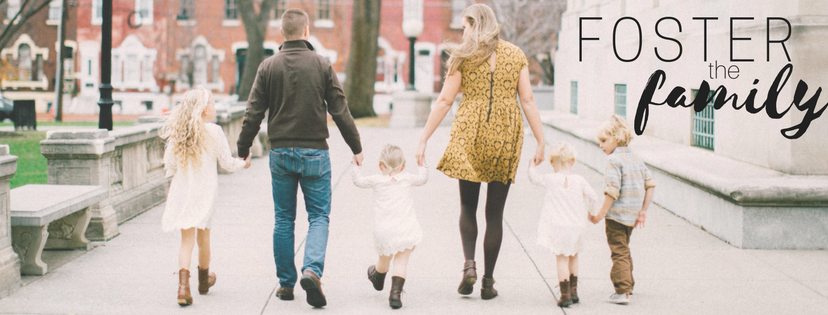Friends, this is it!! The title & cover & preorder deets of my (actual real life, dream come true) upcoming book, Foster the Family!! 😭
My Advice for Soon-To-Be, Maybe-One-Day, or Brand-New-and-Waiting Foster Parents
While you’re waiting to open your home or welcome a child into your home, I encourage you to use this time. Use it actively & intentionally, as a time to build your heart & your knowledge & your tool box. Use it to prepare yourself for the kids you’re about to welcome and the families you’re about to serve.
Yes, I Get Too Attached
There's this thing that many non-foster parents say to foster parents, and it goes like this: "Oh, I could never do that. I would get too attached. I would fall in love and not be able to give them back." We've all heard it countless times, amiright?
The Messy Middle of Trauma Parenting
Trauma parenting isn’t as simple as following methods and getting results. It’s a long term process of partnering with our kids in their healing.
The Roller Coaster of Foster Care
I’ve gotten pretty good at the roller coaster of foster care. The strategy: you just choose to get off the roller coaster. You forget about the ups and downs, and you remain with feet planted squarely on the ground. Some would call it denial. But it’s much deeper than that for me. I don’t ignore what’s happening. I remember that God is the One in and above what’s happening. That I have grace to sustain me today, and when tomorrow becomes today, I’ll have grace waiting for me there, too. That truly trusting Him can keep me from the stomach flips of every drop & curve.
Trauma Changes the Brain and Body
You’ve heard me say it countless times about our kids: Trauma changes the brain and body. Today I’m reminding you of this same thing for yourself. Acknowledge the trauma you’ve experienced. Recognize the way it affects you. And be vigilant in protecting and promoting your health and healing.
Zoom Out, Friends, and Find the Joy
Yeah, of course, there are a million moments of happy. But for me, the real joy—the kind that keeps you going—isn’t found in these small & sweet times. For me, it’s found by zooming out, seeing the big picture, re-focusing on the purpose & re-orienting to the why.
The System is Broken
Sometimes foster parents say the system is broken when they actually mean their hearts are broken. They say things didn’t go in the child’s best interest because they think they’re the “better” interest. Personally, I think we need to be careful not to label something as broken when it’s actually operating the way it should.
Learning How To Grieve Together
It’s really hard helping my kids handle something that I don’t know how to handle myself. I have no recipe for my own grief right now beyond trying to let myself feel sad and remembering & trusting God.
Adoption Is A Picture Of The Gospel
Our very existence as God’s people is rooted in the reality of adoption. “Once [we] were not a people, but now [we] are the people of God.” Once we were fatherless, but now—through His adoption of us—we are the children of God.
Love Is A Choice
Love is a feeling. Love is a choice. Love in both forms is found in foster care.
We Grieve With Hope
We grieve as those whose grief has purpose. Those whose grief has affected souls and lives and changed histories. We grieve with the joy of relationship and calling and gain. We grieve with hope.
Mama, Remember Your Child
Mama, remember your child—in all of their emotions and needs, history and complexity. And if, in the remembering, like me, you’re overwhelmed by weight of it, aware of how little you can do to “fix it,” unsure what they need...just hold them in your arms and hug ‘em through it.
When You Are Weak, Then You Are Strong.
It’s a flat out lie that God won’t give you more than you can handle. I’m living proof and, well, He never says that anywhere in His Word.
What About My Kids
The “what about my kids” question is important, though, because it must be answered. We have to wrestle and conclude—not that foster care is “worth it” despite the effects on our forever kids—but that, ultimately, we trust God for our forever kids.
Our Kids Need So Much
The thing my kids need the very most is the thing I’m least able to provide. They need to be saved. I can trick myself into thinking I can manufacture these other, smaller changes. But I’m well aware that I can’t change my kids’ hearts, can’t transform their lives, can’t redeem their souls.
A Forgiven Mom
I’m not sure what kind of mom I am. But, before and above everything else, I know I’m a forgiven mom.
Sharing Our Calmness
And I felt it. That I don’t need to try to muster the strength to carry them all through this. That—actually—together, as a family, we’ll carry each other.
Strong as a (Foster) Mother
Nothing has made me feel weaker than this foster mom life. But I've found great strength in embracing weakness. I'm as strong as a (foster) mother.




















